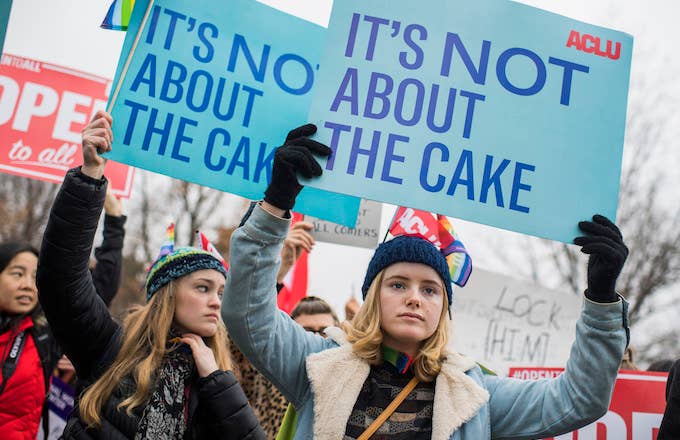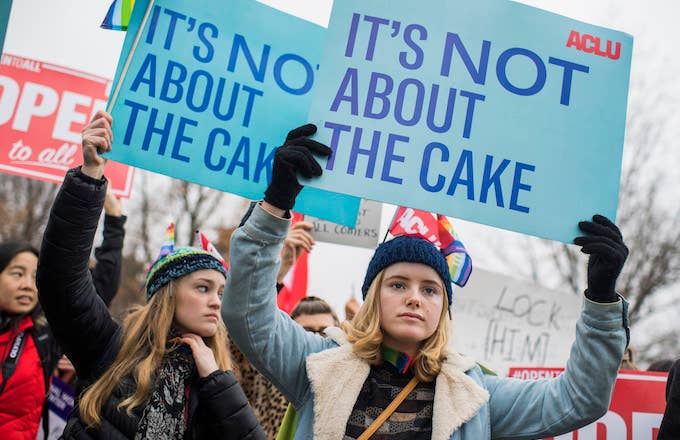
In a sad day for marriage equality, civil rights, and the social standing of homosexuals in the United States, the Supreme Court’s 7-2 ruling in favor of Jack Phillips, the Colorado baker who refused to bake a cake for a same-sex couple trying to celebrate their marriage has set a troubling legal precedent.
According to CNN, the court maintained that the Colorado Civil Rights Commission was overtly hostile towards Phillips, who staunchly utilized his religious beliefs as the main legal reason he objected the couple’s order. The ruling, written by Justice Anthony Kennedy, fortunately isn’t as broad and all-encompassing as critics may initially think.
This isn’t a new concrete pillar upon which future bigots and anti-homosexual business owners can anchor their discrimination to. The ruling is specific to this particular, singular case, and apparently resulted largely from the hostility the Colorado Civil Rights Commission showed against Phillips for discrimination, while arguably discriminating against his religious beliefs at the same time.
Of course, not everybody sees that argument as equally and balanced as the Supreme Court, as one of those scenarios seems far more vitriolic and discriminatory than the other.
Additionally, this isn’t the first time judges have ruled in favor of people like Phillips in scenarios like these. Earlier this year, a Superior Court judge in California cited a baker’s religious beliefs and her right to free speech to not bake a lesbian couple’s wedding cake. With a Republican President and an increasingly Republican Supreme Court, today’s ruling might not be the last that leans right in these matters.

